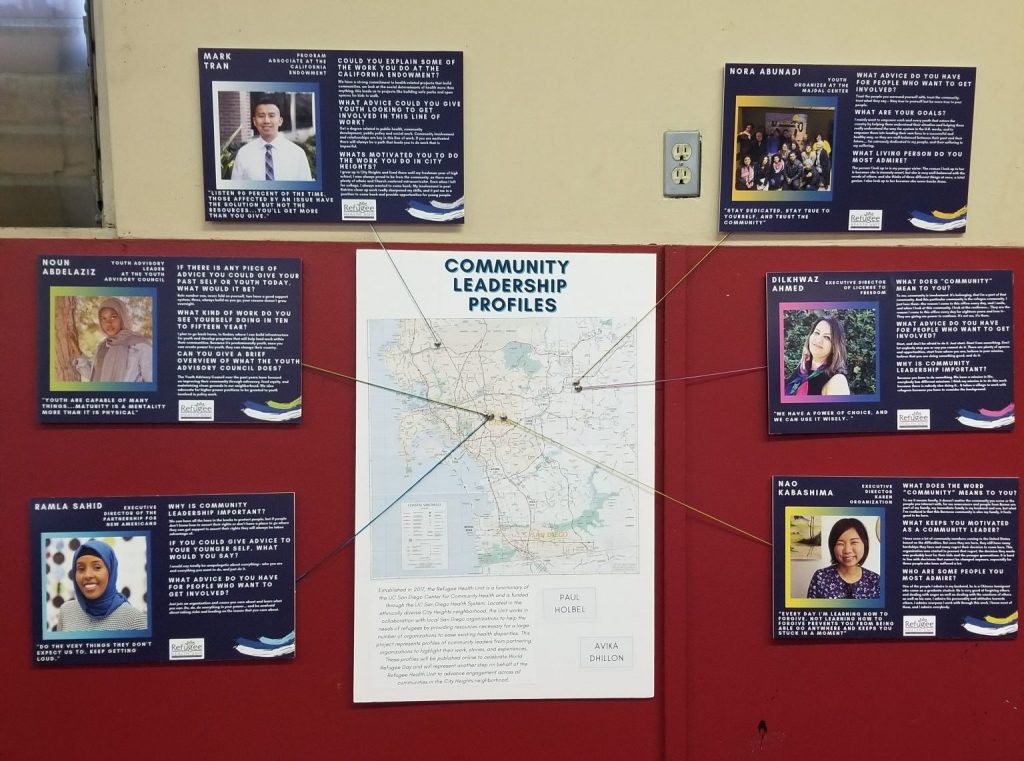
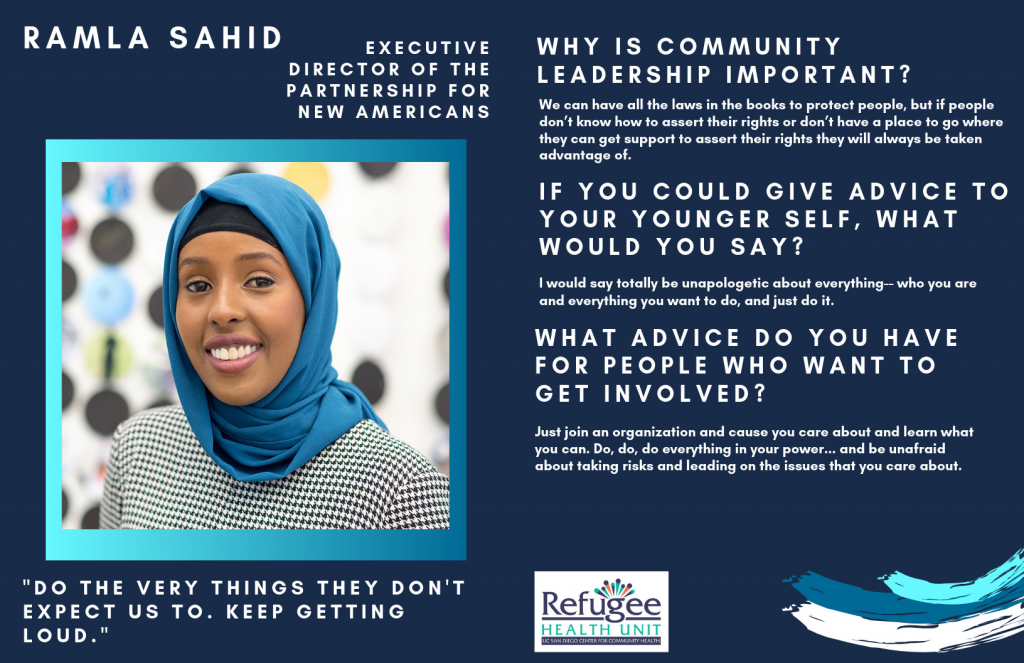
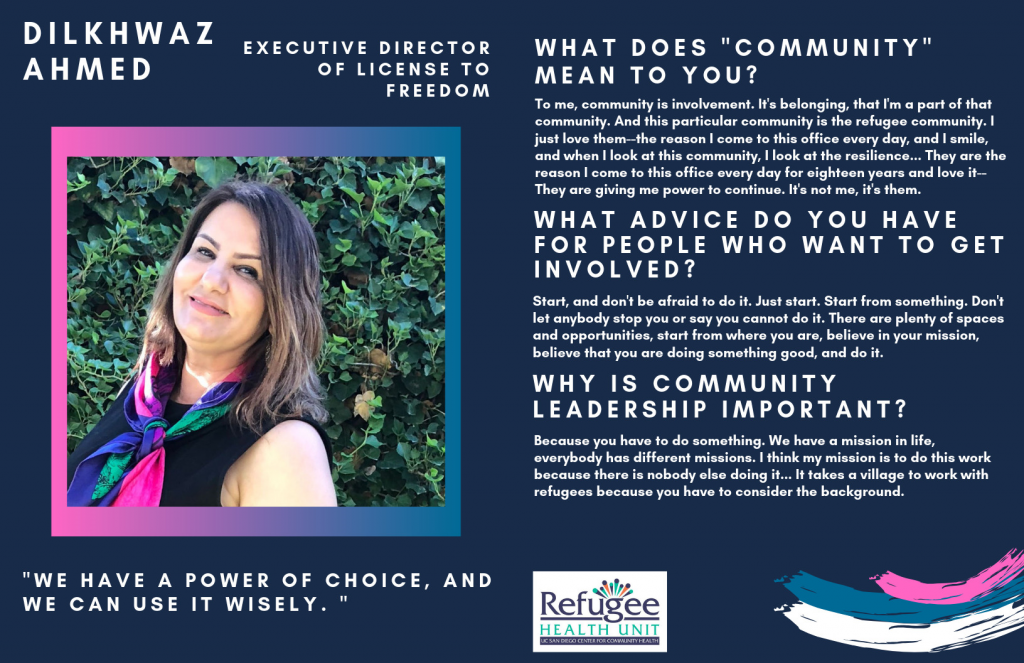
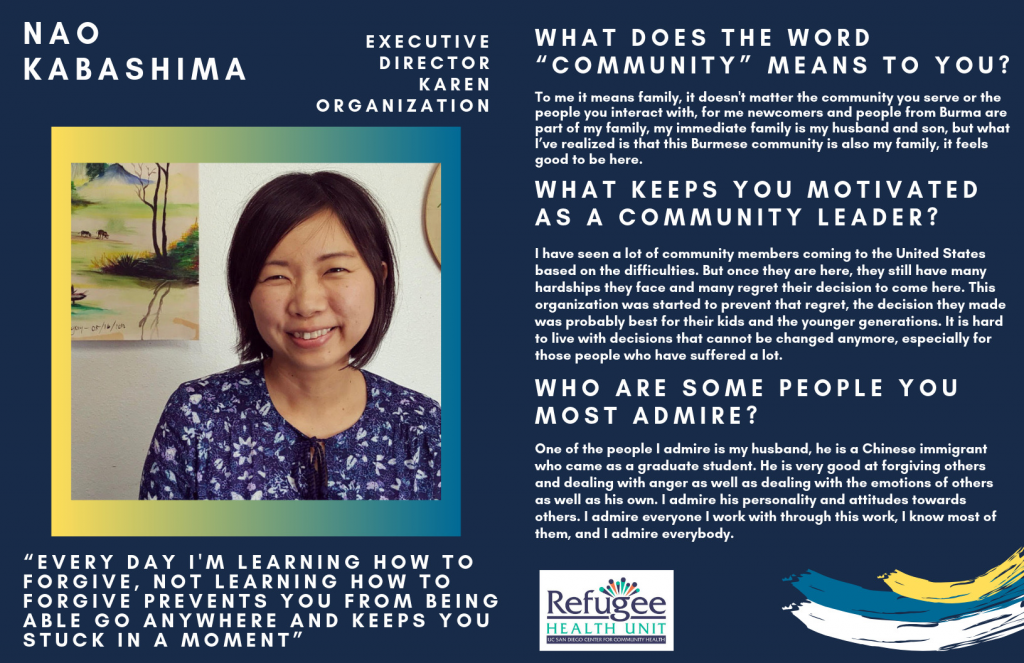
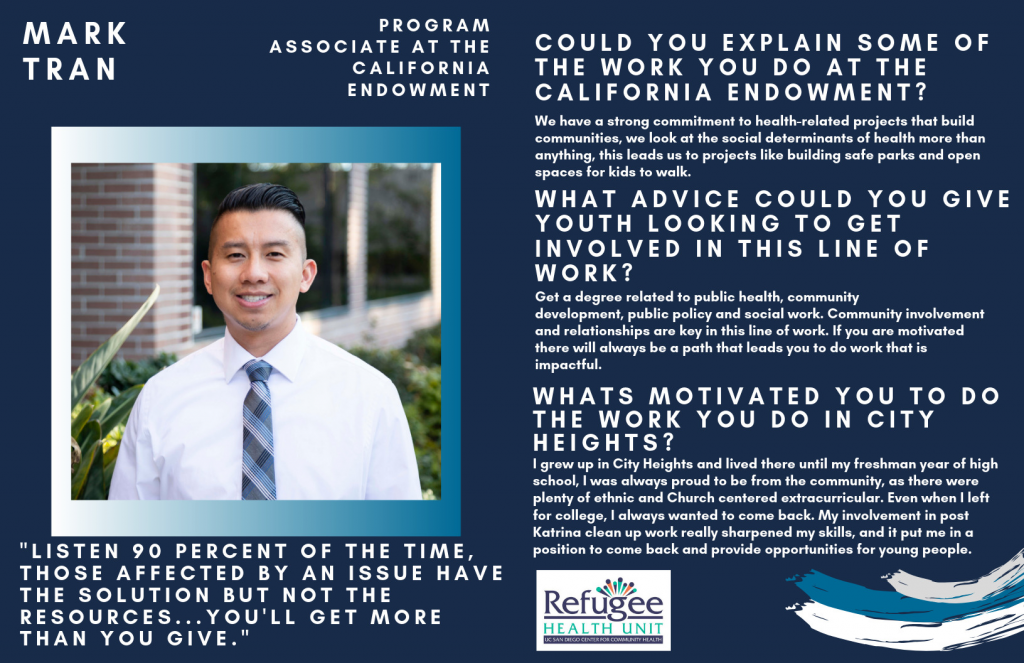
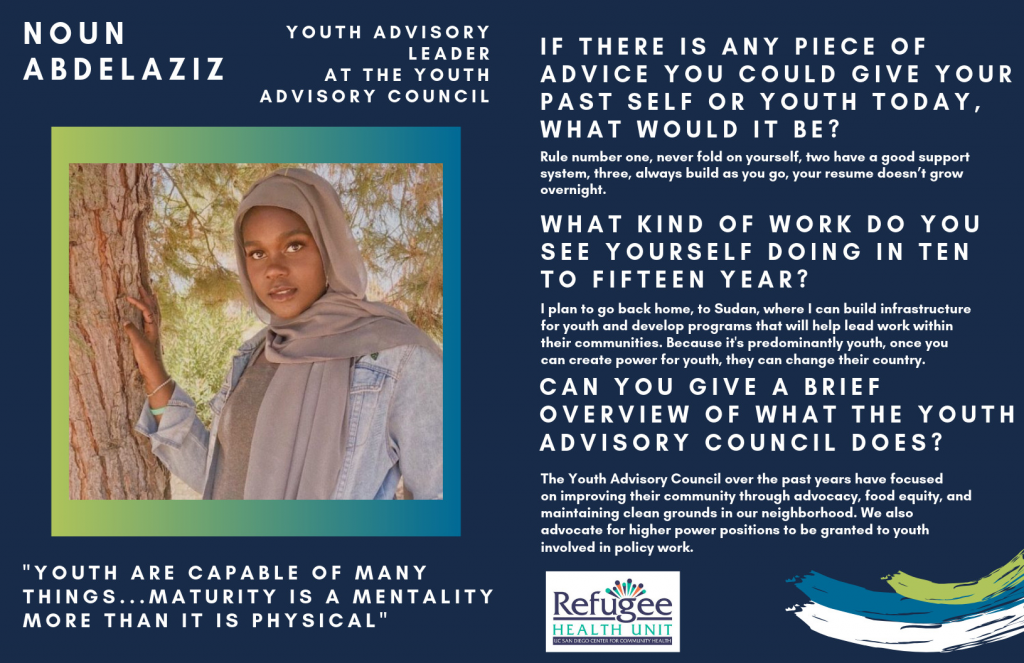
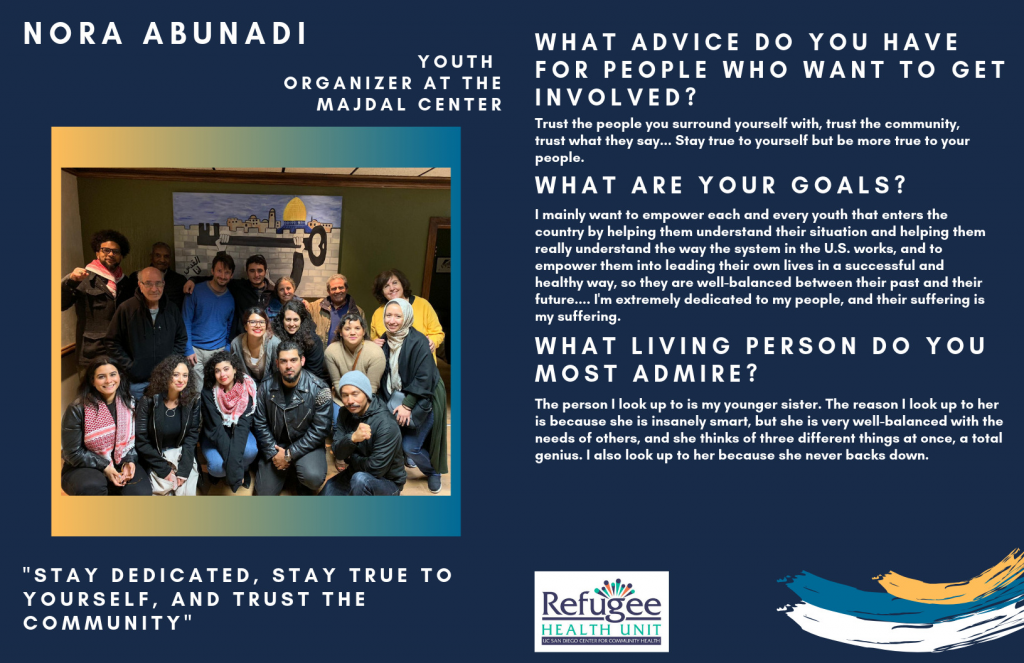
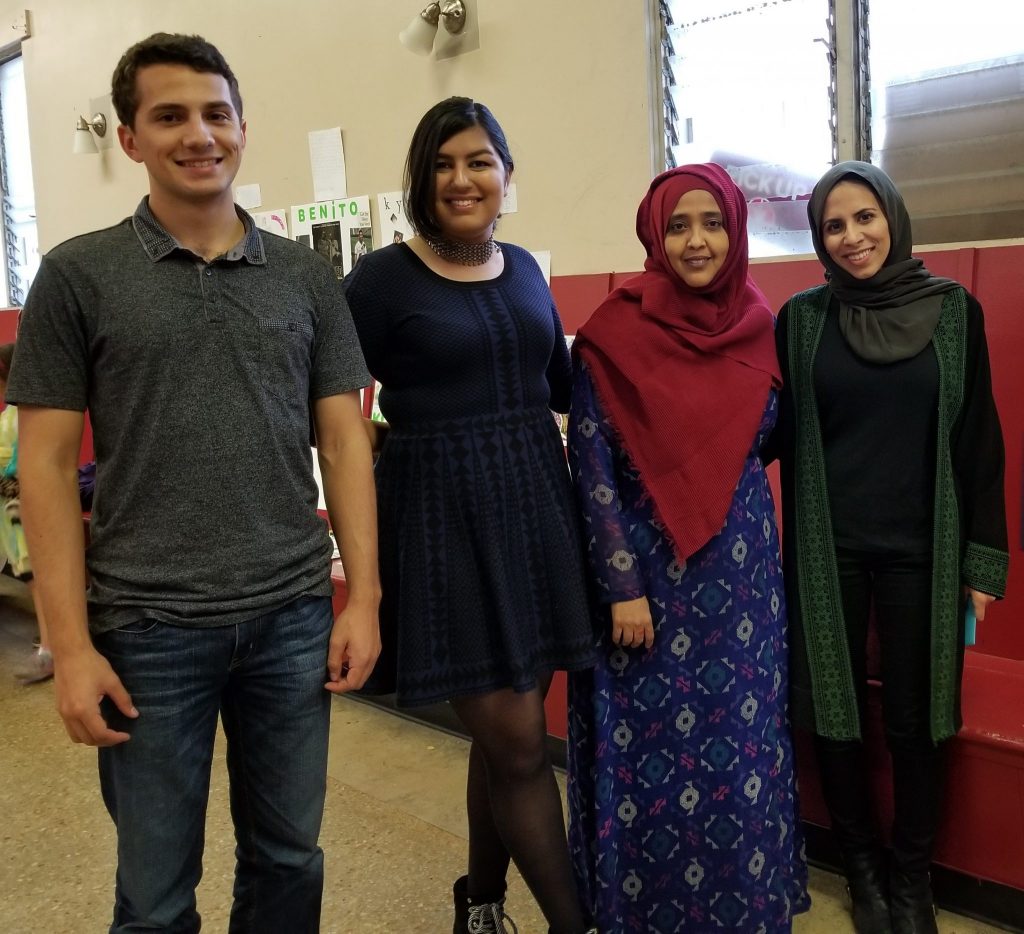
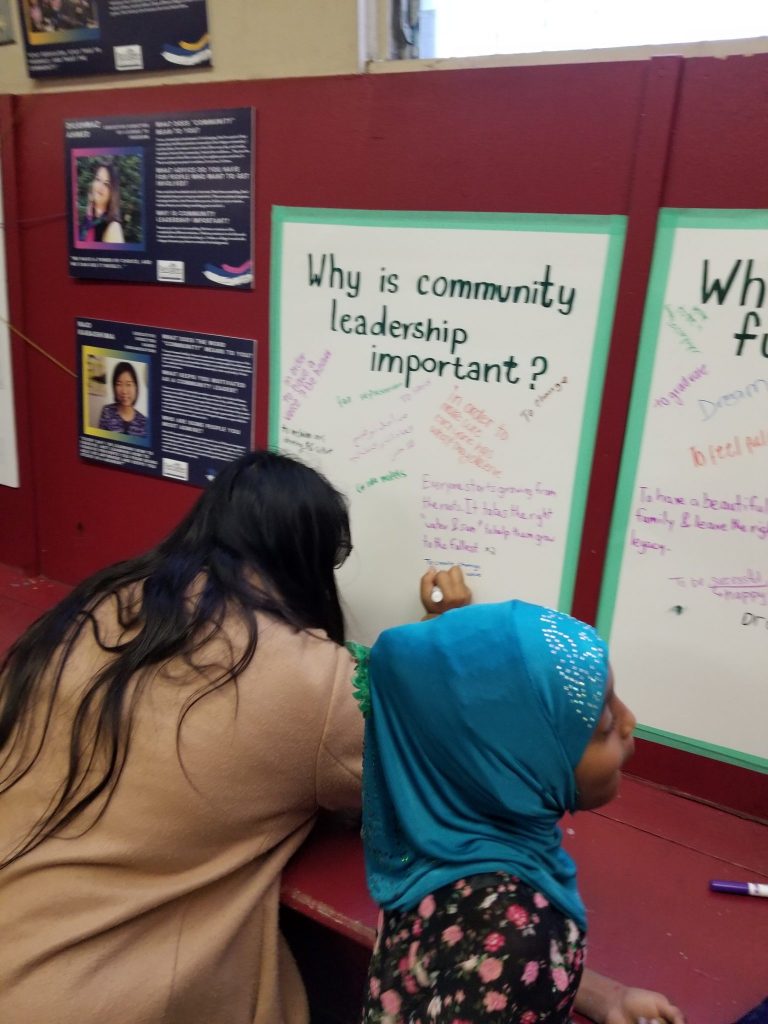
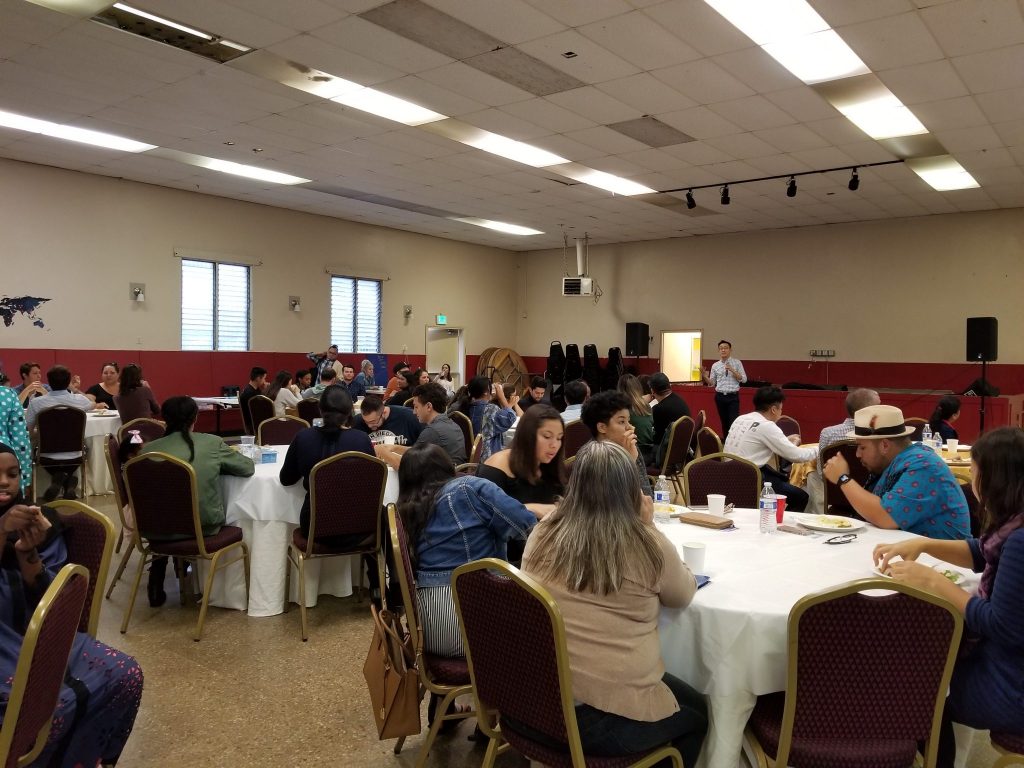
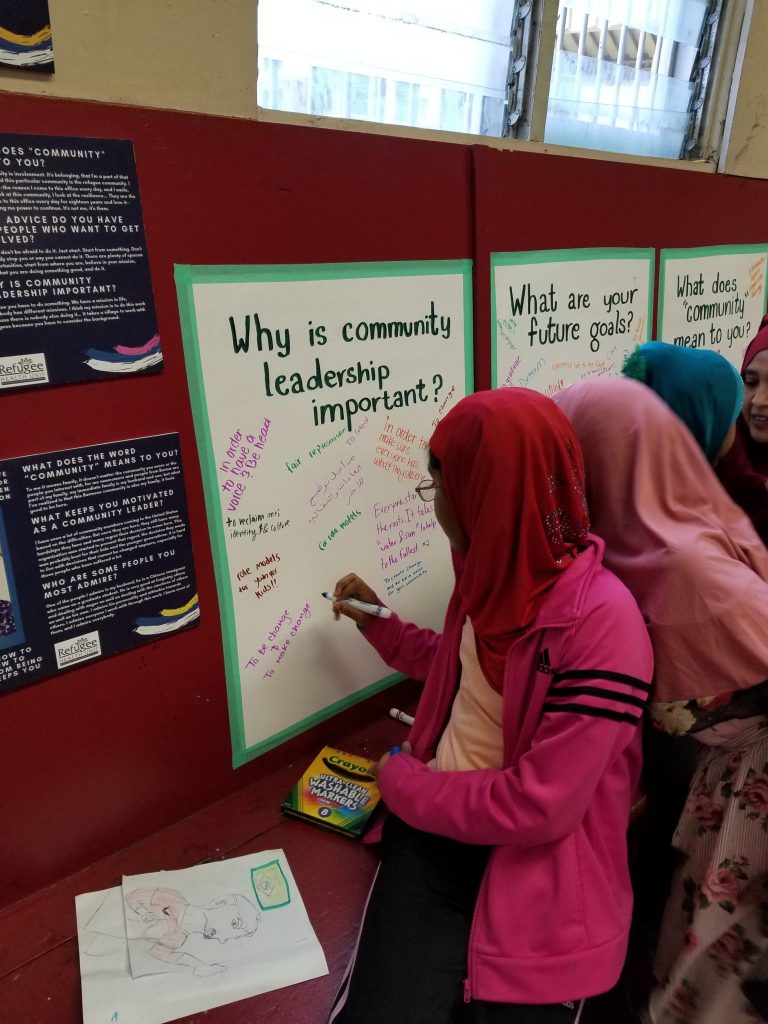
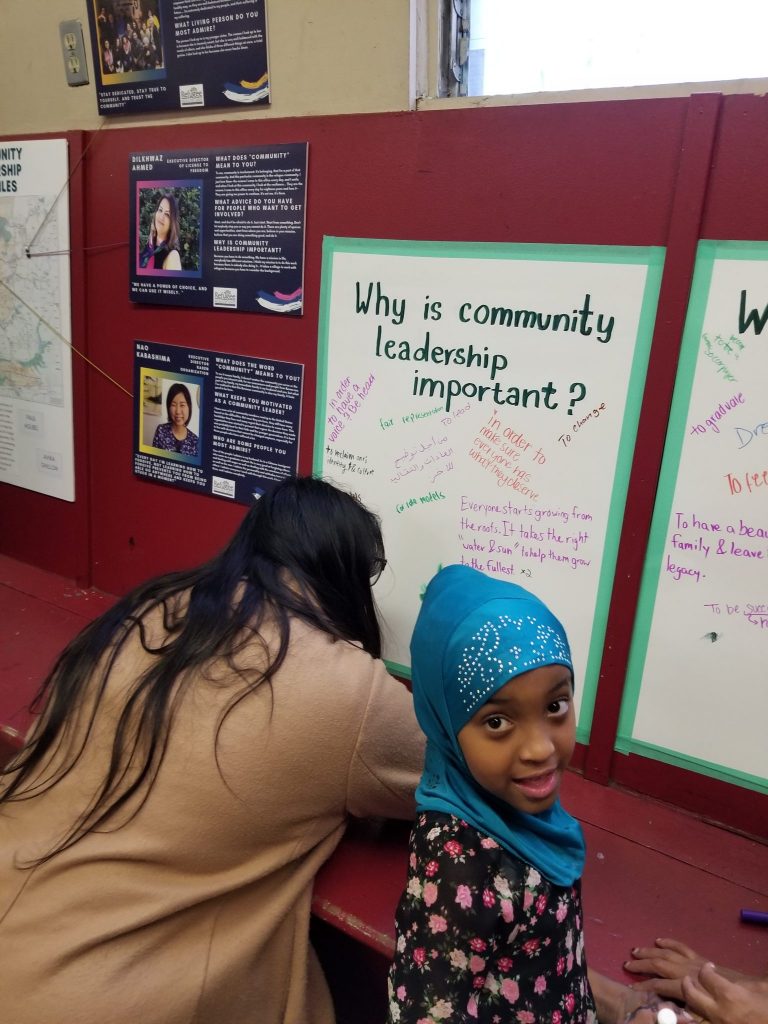
Over the past few months, the Refugee Health Unit has been working with two interns from UC San Diego’s Race and Oral Histories class. Throughout their last quarter of the school year, Avika Dhillon and Paul Holbel planned and completed a community profiles project aimed at highlighting community leaders that are engaged in working with refugee and new immigrant communities. For them, this was an opportunity to get to know some of the diverse communities of San Diego, and to get to talk to some of the leaders who are working to improve opportunities and outcomes for their communities. For us, it was a chance to take the time to appreciate our partners and celebrate the work that they do. The students’ projects culminated with a big event at the East African Center where students presented their projects and community members were welcome to attend.
Below is a short excerpt from the interns’ project reflection. Click here to read the full piece and to view the class projects.
Established in 2017, the Refugee Health Unit is a functionary of the UC San Diego Center for Community Health and is funded through the UC San Diego Health System. Located in the ethnically diverse City Heights neighborhood, the Unit works in collaboration with local San Diego organizations to help the needs of refugees by providing resources necessary for a large number of organizations to ease existing health disparities. In particular, the Refugee Health Unit addresses public health issues in a holistic manner, with an emphasis on mental and physical health. For our project with the Refugee Health Unit, we created a series of community profiles that highlight the work, stories, and experiences of community leaders from a variety of partner organizations that work with the Unit. The profiles were based around six different interviews, three interviews conducted by Paul Holbel and three conducted by Avika Dhillon.
We primarily worked with Reem Zubaidi, the Health Policy and Communications Coordinator at the UC San Diego Center for Community Health, and Amina Sheikh Mohamed, the Director of Community Mobilization Programs at the UC San Diego Center for Community Health. They are also two principal members of the Refugee Health Unit, and after consulting with them we developed a two-part approach to our assignment. There would be a primary digital component as well as an interactive poster-board that would be presented on June 7th at the group project showcase. Zubaidi indicated that the Refugee Health Unit is looking to extend their online presence and accessibility regarding to local communities, so after interviewing community leaders we would create an infographic for each person that could be shared on social media or printed on flyers. The graphic would explain the individual’s role in the partner organization, what they looked like, the main quote highlighting the image, and three questions and answers from the interview.
Click here to read more on the Race and Oral Histories class website.
